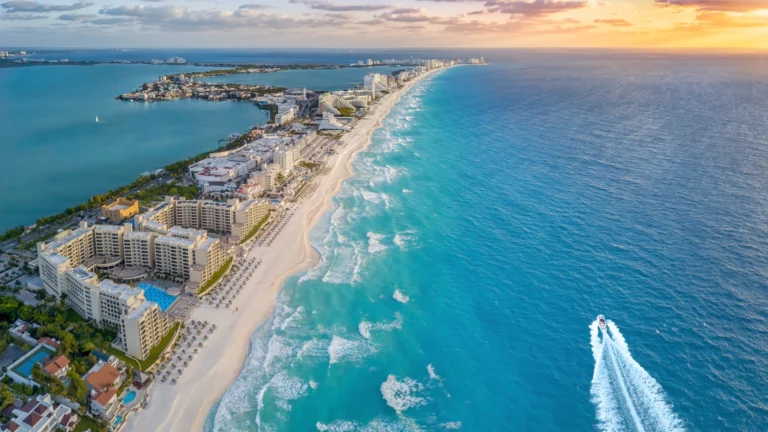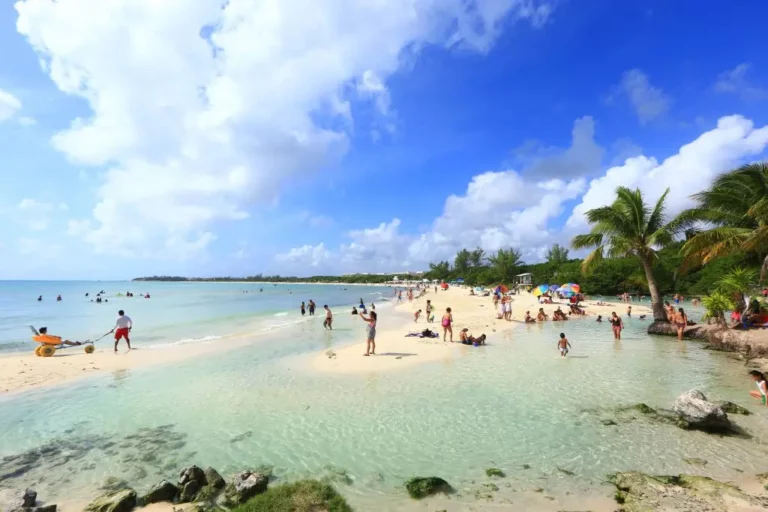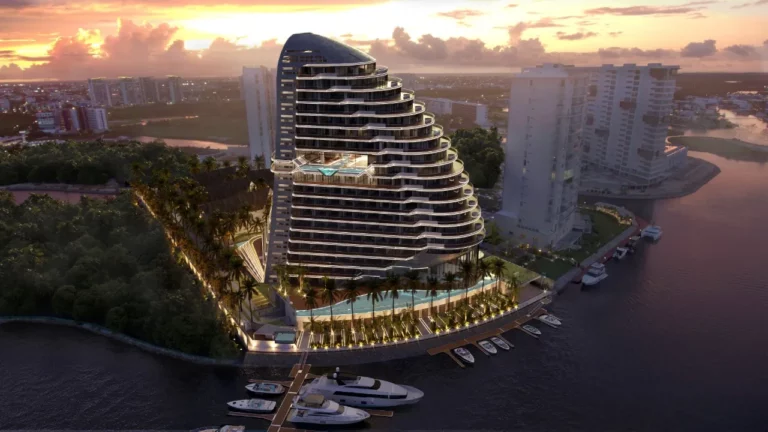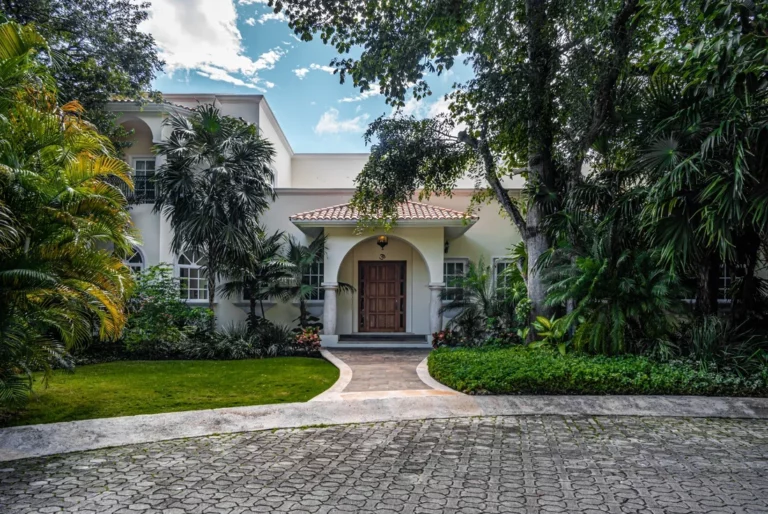Rich US families are getting Citizenship in Other Countries like Mexico and NZ says CNN.
In recent years, a growing number of wealthy American families have begun to seek second citizenships and national residences, a phenomenon that challenges the traditional narrative of the American Dream. Rather than striving solely for success within the United States, the affluent are now building “passport portfolios”—collections of multiple citizenships that offer them the flexibility to move away from their home country if necessary. This trend raises fundamental questions about the motivations and implications for such a shift in the perception of the American Dream.
The Rise of Passport Portfolios
According to Henley & Partners, a law firm specializing in citizenship services for high-net-worth individuals, Americans have become the most prolific nationality in securing alternative residences or additional citizenships. This marks a significant shift from traditional immigration patterns, typically characterized by individuals and families aspiring to establish roots in the U.S. in pursuit of better opportunities.
High-Profile Examples
The trend includes several high-profile individuals, such as billionaire tech investor Peter Thiel, who has acquired New Zealand citizenship, and former Google CEO Eric Schmidt, who opted for Cypriot citizenship. These cases highlight a strategic approach to global mobility that allows wealthy individuals to reside where they can maximize their personal and financial opportunities.
Top Destinations for Supplemental Passports
The most popular destinations for these supplemental passports include New Zealand, Cyprus, and closer nations like Mexico. These countries offer various benefits, including tax advantages, security, political stability, and lifestyle improvements over the perceived declining public safety and political polarization in the United States.
Why the American Dream May Be Changing Direction
There are three main reasons why wealthy Americans are increasingly creating passport portfolios:
- Financial Diversification: Just as investors diversify their investment portfolios to manage risk, acquiring citizenships in diverse geopolitical landscapes can protect against economic and political instability in one’s home country.
- Global Mobility and Security: Multiple passports offer greater travel freedoms, reduce reliance on a single nation’s passport, and provide escape routes should the need arise due to political or environmental crises.
- Tax Optimization: Some countries offer significant tax advantages to wealthy expatriates, which can be a compelling reason for those looking to reduce their fiscal burdens legally.
Implications for the American Dream
The concept of the American Dream traditionally revolves around the idea of finding prosperity and success within the U.S. However, the growing trend of acquiring multiple citizenships suggests a transformation in this dream. Rather than seeing America as the final destination for success, the wealthy may now view it as one of many platforms for global opportunities. This shift points to an evolving definition of what it constitutes to achieve the “American Dream” in a globalized economy.
Reflecting on National Identity and Commitment
This phenomenon also prompts reflection on national identity and commitment. As wealthy individuals hedge their bets by securing citizenships abroad, it raises questions about loyalty and belonging. Are these individuals leaving the American Dream behind, or are they simply adapting it to a more globalized vision?
Public Opinion: Diverse Perspectives on Leaving the American Dream Behind
As the trend of securing multiple citizenships gains traction among wealthy Americans, public opinion reveals a complex tapestry of approval, envy, suspicion, and philosophical inquiry. This section delves deeper into the societal reflections and pragmatic discussions circulating among Americans.
Economic and Political Discontent
Critiques of Wealth and Power: The accessibility of multiple passports is often viewed through a lens of economic disparity. Comments frequently highlight a perception that such opportunities underscore systemic inequalities, allowing the rich to evade responsibilities and leverage their wealth to gain undue advantages:
- “Always pay attention to what rich people are doing. They’re always ahead of the curve and have more information than the general public.”
Political Distrust and Displacement: Discontent with political leadership and policies is a recurring theme, suggesting that political instability and dissatisfaction are significant drivers behind the pursuit of alternative citizenships:
“Bidenomics BABY!!! 😂 just think 3 years ago they loved America and hated the orange man… my my how things have changed.”
Accessibility and Legal Implications
Broadening the Reach of Citizenship: While the narrative often focuses on the wealthy, several commenters advocate for the democratization of dual citizenship, arguing that middle-class individuals can also pursue this path with adequate knowledge and preparation:
“You don’t need to be rich to get dual citizenship; you just need to have a valid visa and proper pathway to citizenship. That’s currently what I’m doing with New Zealand since I wanted to leave America.”
Navigating Tax Obligations: The U.S. tax code poses a daunting barrier to expatriation, with its global reach affecting citizens’ income worldwide. This legal reality sparks a significant amount of debate about the costs and benefits of holding multiple citizenships:
“The rich? Lol you mean knowledgeable people like me who know how to navigate the tax laws.”
Cultural Shifts and Identity
Changing Definitions of Patriotism: Some individuals reflect on the evolving concept of national loyalty. The act of acquiring multiple citizenships prompts discussions about whether traditional patriotism is outdated in a globalized world:
“Is the American dream, to leave? Maybe it’s becoming more about global citizenship than the U.S. dream.”
Identity and Global Mobility: As people express their identities through multiple national allegiances, the conversation often turns to what it means to be American in the 21st century. For some, holding multiple passports is a pragmatic adaptation to a world where national borders are becoming increasingly porous:
“It’s cool when rich people do it but when middle class professionals like me do it, some people say go back to your country and stupid stuff like that.”
Conclusion
The trend of wealthy Americans opting for second or multiple citizenships is indicative of a broader shift in the perception and aspirations associated with the American Dream. While it might not signify a complete abandonment of American values, it certainly reflects a more pragmatic, global approach to wealth, security, and personal freedom. As the world becomes increasingly interconnected, the traditional American Dream may be giving way to a new, more globally oriented vision.
Credit: CNN








